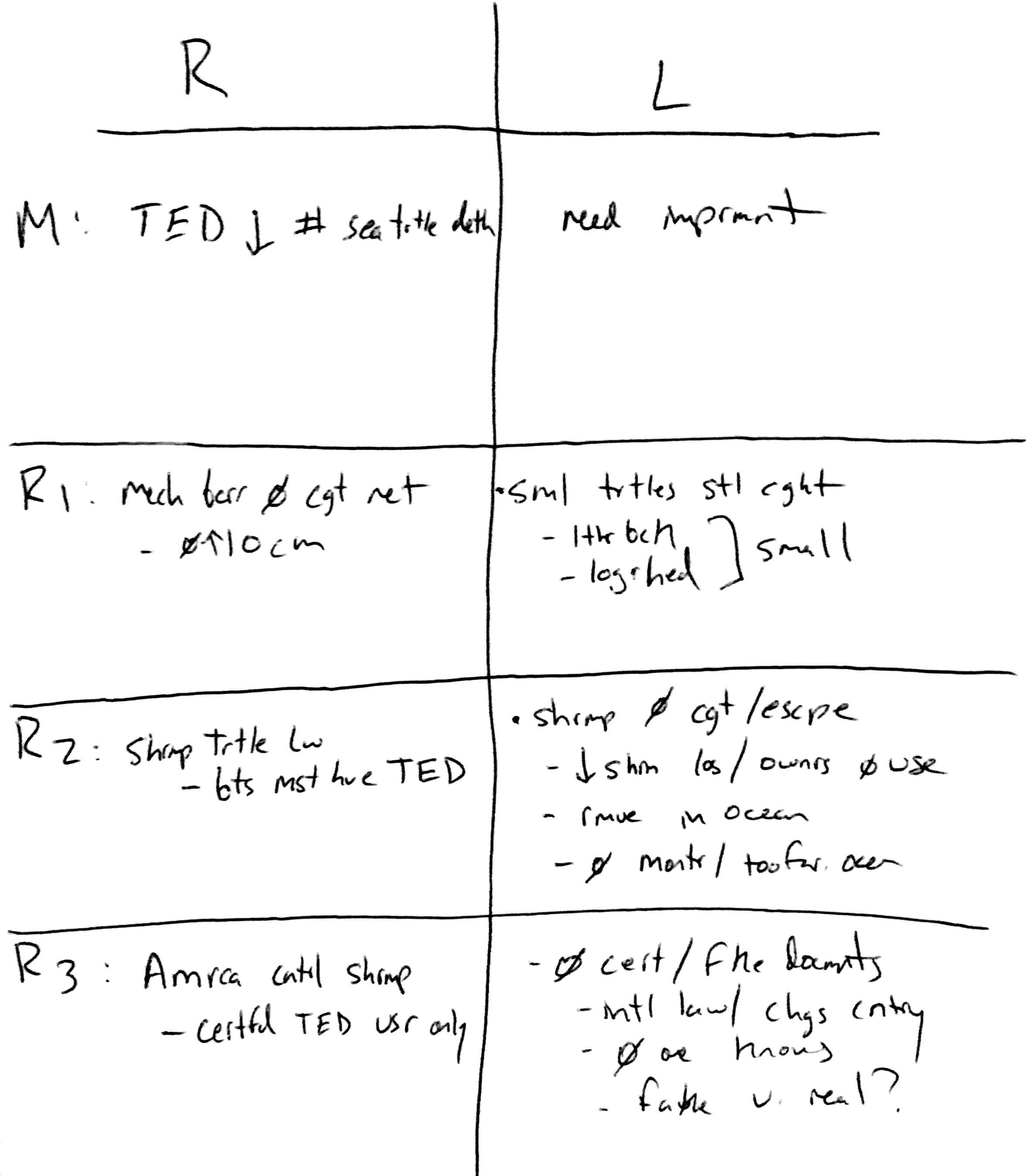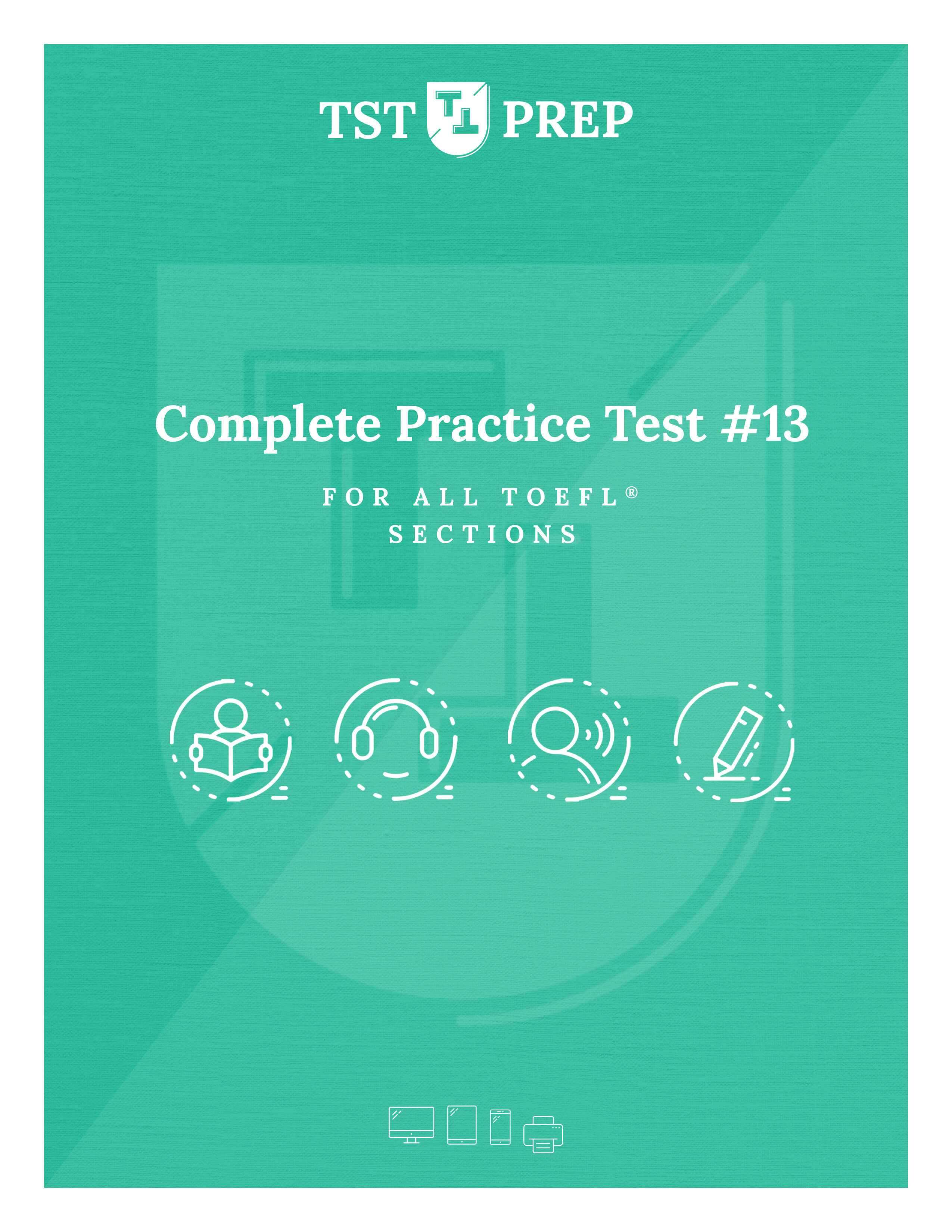Ten Awesome Tips for the Writing Section of the TOEFL® Test

We know it can feel impossible to write two complete essays in 30 minutes!
But today, we have some awesome TOEFL writing tips that will help you feel cool and confident on test day.
The first five tips are for the TOEFL integrated writing question, task number one. The last five tips are for the TOEFL Writing for an Academic Discussion question, task number two.
Here's a quick summary of our top 10 TOEFL Writing Tips
- Tip #1 – Pay careful attention to the reading passage because the listening passage will argue against each point made in the reading.
- Tip #2 – Practice taking short, but precise notes during the listening passage. You will only get to listen to it once.
- Tip #3 – Paraphrase the passages. One of the grading criteria on the TOEFL is vocabulary, and you will earn zero points if you simply quote the material.
- Tip #4 – Use lots of transitional words and phrases. They will help you develop your essay and connect your ideas.
- Tip #5 – Manage your time wisely. You only have 20 minutes to construct an essay of at least 250 words.
- Tip #6 – Be sure to add to the discussion. Do not repeat points and ideas from the discussion in your response.
- Tip #7 – Stick to a few simple verb tenses.
- Tip #8 – Try to include multiple sentences with more than one clause.
- Tip #9 – Plan to edit your essay for at least one minute at the end. There is no spellcheck on the TOEFL.
- Tip #10 – Practice writing at home and ask a teacher or trained TOEFL expert to give you a grade and point out your weakness.
TASK 1 (The Integrated Writing Task)
TIP #1: Read, then Listen
Task one provides you with two passages, a reading passage, and a listening passage. The reading passage will appear first. You will have three minutes to read the passage and take notes. After that, the reading passage will disappear, and then the listening passage will play for two or three minutes. Then you have 20 minutes to write your essay.
Here is a breakdown of task one:
Integrated Writing: Task Breakdown |
|
|---|---|
| Question Structure | Content |
| 1st | The writing section instructions will be read aloud. You can skip this introduction. |
| 2nd | You will be given an academic passage to read. This passage will contain between 250-300 words. When the clock starts, you will have three minutes to read the passage. After that, the passage disappears and an audio lecture starts. However, the reading passage will return when it's time to write. |
| 3rd | A lecture that addresses the content of the reading will start to play. The lecture will last for two to three minutes. |
| 4th | After the passage finishes, you will be asked a question. The question is almost always something like: "Summarize the points in the lecture, being sure to explain how they challenge specific points made in the reading" |
| 5th | The clock starts. You will have approximately 20 minutes to write an essay of at least 250 words. You must answer the question and report on the most important points from both the reading and listening. |
It is important to read the reading passage first because the professor in the listening passage is going to directly contradict the author in the reading passage. Therefore, if you sleep on the reading passage, when the lecture begins, you may miss some vital information that you must include in your writing.
Let’s look at an example from TST Prep’s TOEFL Test #13 that you can download for free here to practice before test day.
Here’s the reading passage:
The shrimping industry relies on trawls to catch shrimp. Trawls are huge nets that are dragged behind boats in order to catch shrimp. Other animals, like sea turtles, are often caught inside these nets and soon die without sufficient oxygen. To help reduce the number of accidental deaths to sea turtles, engineers created a Turtle Excluder Device (TED), that must now be installed in all shrimping trawls. This one simple invention has greatly reduced the number of sea turtle deaths per year for a number of reasons.
First, the TED was specifically designed to help sea turtles. The TED mechanism has a mechanical barrier in the middle of the net that prevents any animal larger than ten centimeters from getting caught deep inside. Once the animal hits this metal grid, it tilts downward, providing that animal with a clear path to exit. Smaller animals, like shrimp, pass through the metal guard and get caught in the end of the trawl net, as usual.
Second, in order to make sure that fishermen use the Turtle Excluder Device, the “Shrimp-Turtle Law” was passed. It states that all trawling shrimping boats must have a TED installed. There are specific organizations in charge of monitoring shrimping vessels to ensure that their TEDs are properly installed and maintained.
Finally, America now tightly controls the import of shrimp. All shrimp products must come from a ship that is a certified user of TED-installed shrimping trawls. Countries, companies, or fishermen who do not comply with the “Shrimp-Turtle Law” are not allowed to sell their products in the US and some European countries. Since most shrimping businesses want to import their goods to as many locations as possible, they have decided to comply and install TEDs in their trawls.
The underlined portions are the most important points in this passage.
- Main Idea: Turtle Excluder Devices (TEDs) have reduced the number of sea turtle deaths
- Reason 1: TEDs designed to prevent large animals from getting caught
- Reason 2: All boats must have a TED installed
- Reason 3: Shrimp importing is now tightly controlled
Now that I know all this about the reading passage in this particular integrated TOEFL Writing question, I can safely predict that the speaker in the listening passage will feel that Turtle Excluder Devices are ineffective and attack each of the claims in the reading.
TIP #2: Take Good Notes
It is very, very important to take good notes during Task 1, especially on the Listening passage. There are two reasons for this:
- The reading passage will reappear after the lecture and be visible while you are writing. Therefore, while it is important to take note of the author’s position and main points, you don’t need to take as extensive notes on the reading passage.
- You are expected to write more about the listening passage than the reading. That’s right! In your answer, you should write twice as much about the professor’s viewpoint and counterarguments then the author. Therefore, it is vital that you take good notes during the lecture.
I can’t emphasize this enough: take good notes on the Listening passage!
You will be expected to write twice as much about the content of the listening passage than the reading.
Here’s a link to the audio passage on Turtle Excluder Devices. Listen and compare your notes in the reading to your notes in the listening.
Try to write more about the listening section then the reading, even in your notes.
Here are my notes to the listening passage from the TOEFL integrated writing


Here’s a link to that audio passage again so you can practice taking notes and compare yours to my own.
TIP #3: Don’t Quote!
For the TOEFL integrated writing task, you are expected to explain the positions of the author and the professor, in your own words! It is very important, therefore, to paraphrase everything.
This is especially true of the reading passage. Remember, while you are writing your essay, the reading section will be right in front of you. If you directly quote the author, the TOEFL e-rater system will pick up on this and it can lead to a reduction in your score!

For example, let’s say that the reading passage states:
“There are many who argue that corn ethanol should replace fossil fuel gas as the primary source for running cars.”
DON’T say in your answer: “The author discusses how there are many who argue that corn ethanol should replace fossil fuel gas as the primary source for running cars.”
This is a huge mistake that many students make!
Instead, paraphrase the author’s position, such as: “The author discusses the advantages of switching from fossil fuels to the alternative energy source: corn-based ethanol.”

TIP #4: Use Lots of Transitional Words and Phrases
Transitional words and phrases are a crucial component of your writing, especially in TOEFL Writing task one. You will have to transition between contrasting points of view in both the reading and listening passage. The best way to keep your essay cohesive is to transition between ideas with these discourse markers.
They will prove to the TOEFL grader and e-rater that you have a firm grasp on both the English language and North American academic essay structure
Here is a list of some common transitional words and phrases:
TRANSITION WORDS AND PHRASES |
||
|---|---|---|
| Purpose | TOEFL Essay Location | Words and Phrases |
| Adding (elaborating) | (integrated) - Reporting on points from the listening passage in the body paragraphs (discussion) - When explaining your reasons and developing your examples | actually, additionally, also, as well, as a matter of fact, for example, for instance, in addition, believe it or not, furthermore, indeed, in fact, moreover, such as |
| Emphasizing | (integrated) - Reporting on points from the listening passage in the body paragraphs(discussion) - When explaining your reasons and developing your examples | above all, as a matter of fact, especially, indeed, in fact, most importantly, obviously |
| Showing cause and effect (connecting) | (discussion) - When you are connecting your example to the topic | as a result, consequently, hence, therefore, thus |
| Contrasting | (integrated) - When transitioning to the point of view of the listening in body paragraphs(discussion) - When recognizing the opposing argument | although, at the same time, but, contrary to, even so, even though, however, in contrast to, nevertheless, nonetheless, on the other hand, still, when in fact, while, yet, whereas |
| Ordering | (integrated) -The first sentence of each body paragraph (discussion) - When providing more than one reason for your stance on the topic | afterward, finally, first (second…) in the first place secondly, another reason, in the past, later, next, now, subsequently, while |
| Concluding | (integrated) - Located in the conclusion paragraph, which is optional for this essay(discussion) - In the last sentence of your response if you include a conclusion | all in all, as noted above, finally, in conclusion, in short, in the end, on the whole, to conclude, to sum up |
If you want to see some of these transition words in action, check out our article Topics and Sample Essays for the Writing Section of the TOEFL Test()
TIP #5: Time Management
For the integrated writing task, you only have 20 minutes to write your essay! Therefore, while time management is important throughout the TOEFL, it is especially important on this task.
You should spend approximately two minutes taking notes and outlining your answer, three minutes writing your introduction paragraph, eleven minutes writing the body paragraphs, two minutes for the conclusion, and the last three minutes for editing.
Here is the time breakdown for task one of the TOEFL writing section:
Integrated Essay Time Breakdown |
|
|---|---|
| Minutes | Tasks |
| 0-2 | Gather your notes and outline the essay |
| 3-5 | Write your introduction |
| 6-16 | Write your body paragraphs (2-3) |
| 17-18 | Write your conclusion |
| 19-20 | Edit your essay |
Be sure to download our Complete Practice Test right here so you can practice the entire test.
…but here is the essay response to the TOEFL integrated question on Turtle Excluder Devices.
The reading and the lecture are about the pros and cons of the Turtle Excluder Device (TED). The writer believes there are many benefits to the use of TED, and that it has decreased the number of sea turtles caught in trawls by shrimpers. The speaker in the listening passage disagrees. He claims there are still many issues with TED, and challenges each of the writer’s points.
First, the article posits that the design of TED includes a metal barrier inside the net that prevents larger animals from getting caught. Additionally, it says, TED also provides a path for the sea turtles to exit. However, the professor points out that small and mid-sized turtles still get caught deeper in the trawls. He states this is because the metal barrier only prevents creatures larger than ten centimeters to pass through it.
Also, the author notes that laws have been passed requiring shrimp boats to have TED and use it properly. The lecturer rebuts this argument. He says that it is impossible for organizations to regulate the fishermen while they are fishing for shrimp and that they can just remove the TED right before putting the nets into the ocean. Furthermore, he argues that they are inclined to do this because sometimes TED can also prevent shrimp from passing into the depths of the trawls, which decreases their profits.
Another reason the writer feels that TED is beneficial is that under import regulations, the shrimp sold in the US can only come from suppliers who are certified TED users. Again, the speaker holds there are flaws in this argument. He suggests that there are many boat owners who claim to be TED-certified, but, in reality, have fake documentation. The lack of consistency in TED certification from country to country allows many to deceive ports and sell their shrimp anyway.
To sum up, both the author and the lecturer hold conflicting views about TED.
Five more to go…
Still with me?
Awesome (just like these tips).
Now, let’s take a look at our last five tips for the TOEFL Writing section.
TASK 2 (Writing for an Academic Discussion Task)
TIP #6: Be sure to add to the discussion
On July 26, 2023, ETS introduced a new TOEFL Writing question called Writing for an Academic Discussion. It replaced the Independent Writing task.

For writing task #2, you have ten minutes to read the discussion and then write a response of 100 words or more.
In the example above, the professor poses a question about whether or not globalization has a positive or negative effect on society. Bryan believes globalization is positive because it brings people and cultures closer together, while Alex thinks globalization leads to the exploitation of developing countries.
When it is time to write, be sure to ADD to the discussion. Do not just repeat the same points made by the other students.
Look at the sample response below. The points highlighted are additional ideas that contribute to the discussion.
In my opinion, globalization is a positive force in the world today. My personal belief is that when nations interact together, it leads to less suffering. For example, people who suffer from natural catastrophes can import goods and services to help mitigate their losses and recover quickly. Citizens of nations who may be going through war or famine can flee to neighboring countries for shelter. I understand Alex’s concern over cultural homogenization, but I believe she misses another critical point. Much of the food found in grocery stores around the world is imported. Our very diet is due to the international trade partnerships and alliances forged over the last half of the 20th century. International trade and travel are not possible in a world without globalization, which is why I believe it is crucial to maintain our current global policies for a safer world with a higher standard of living.
On test day, it is fine to agree or acknowledge the points made in the discussion; just be sure that the majority of your response to the Writing for an Academic Discussion question further develops the online conversation.
TIP #7: Stick to a few simple verb tenses
Test-takers tend to think they have to use complicated grammar in the TOEFL Writing section to earn a high test score.
This isn’t true.
In fact, for the new Writing for an Academic Discussion task, you only need three verb tenses:
- Simple present
- Simple past
- Present perfect
I have highlighted all of the verb tenses used in my response to the question about globalization, and almost all of them are in the simple present.
In my opinion, globalization is a positive force in the world today. My personal belief is that when nations interact together, it leads to less suffering. For example, people who suffer from natural catastrophes can import goods and services to help mitigate their losses and recover quickly. Citizens of nations who may be going through war or famine can flee to neighboring countries for shelter. I understand Alex’s concern over cultural homogenization, but I believe she misses another critical point. Much of the food found in grocery stores around the world is imported. Our very diet is due to the international trade partnerships and alliances forged over the last half of the 20th century. International trade and travel are not possible in a world without globalization, which is why I believe it is crucial to maintain our current global policies for a safer world with a higher standard of living.
But hold on a second.
Your grammar in the TOEFL Writing section can’t be too simple, and there is one more tip to keep in mind.
TIP #8: Try to include multiple sentences with more than one clause
According to Michael Goodine at Test Resources, the TOEFL Writing e-rater likes writing samples that include sentences with subordinating and/or coordinating conjunctions.
A subordinating conjunction is a word or phrase that links a dependent clause to an independent clause, and a coordinating conjunction joins two elements of equal importance.
Check out the table below for a handy list of both.
Subordonating Conjuctions
|
Coordonating Conjuctions
|






Thanks for this invaluable article🙏🏻.
Hi Josh.
Thank you a lot. This post was very useful for me.
Hi Josh,
The sample for Task 1 provided on the ETS website is a bit different from the one you wrote. It solely focuses on the lecture while only saying, “That refutes that point from reading.” Could you have a look and recommend me some tips?
Hi, thanks for your question. To add length to your essay, we suggest including a bit more from the reading section. It can also help you in making sure each point from the listening matches a point referenced in the reading.
Hi Josh,
First, thanks a million for this intelligent and helpful content; you are a great tutor. I found that the time management section has a small mistake with summing the minutes suggested for each step. 2 minutes outline + 3 minutes introduction + 11 minutes body + 2 minutes conclusion + 3 minutes editing = 21 minutes!
Hi Inman, thanks for pointing that out. We will have a look. I would maybe say 2 minutes for an introduction would be better. 🙂
Great! Thanks again.
Hey Josh
Thanks a lot for your time and effort.
You have got a heart of gold.
Lots of love from Afghanistan♥️🇦🇫
Point 7 isn’t true (but perhaps you needed just one more to make 10 tips instead of 9?)
I took both sides all the time when I took the TOEFL, and got a 119 (and the reason I missed one point was the speaking, where I forgot to mention two specific examples).
Cheers!
Hi Ruth and thank you for taking the time to leave a comment. Congrats on your score, that’s incredible. In regards to your opinion on tip #7 ” HAVE A CLEAR OPINION AND STICK TO IT”, it is not put there arbitrarily to inflate the number of tips. We have found that students who fail to have a concrete opinion tend to have difficulty developing the topic and writing with clarity. This is not always the case and you can write a perfect essay by arguing both sides of the argument, generally speaking, however, it is easier to write a clear and well-developed essay when taking one clear side of an issue.
Hello Josh. What do “int” and “ind” mean? You used these in the TOEFL Writing Transitional Phrases table without explaining them. Thanks.
Hi Rob, and my apologies. I should clarify that. The “int” stands for “integrated writing (task 1),” and the “ind” stands for independent writing (task #2).
Hello, I’m preparing for TOEFL, and I found a weird subject for the independent subject. “The average global life expectancy went from 29 years old in 1800 to 71 years old in 2015. According to you, what is the main cause for such a change?”. Do you know if it is possible to have a question like this? Thank you for your help.
Hi there and thank you for your question. This does indeed sound like a reasonable topic since anyone could have an opinion on it. It is a bit strange but definitely possible. (I’ve seen weirder). This would also be difficult because you would have to use past unreal unconditional forms and sentences like “It could have been” “might have been because”, etc. Hope that helps!
Hello Josh! How are you?
Please where can I find the TOEFL Writing 24+ Guide to download?
Here is the link. Hope that helps you find what you are looking for. https://drive.google.com/file/d/1j-fGt9rvjklnU4v-ENUA2cE6d1fp2mt1/view?usp=sharing
Hi Josh, I’m taking my test in a few minutes. Thank you so much for the free material on the website. It has definitely helped me make my own template!
Thanks for leaving a comment Nikitha. How did the test go? I’m always interested to hear if anything was surprising/interesting/etc.
The test was alright! I haven’t received my scores yet, except for Reading (26) and Listening (29). The questions asked were congruent to the examination pattern. I couldn’t really relate to the personal opinion question asked in the speaking section. I found the reading section quite tough compared to everything else. In the end, it wasn’t so bad considering I started prep 24 hours before the exam. If I had put in the effort, I would’ve been able to do well.
Hi Josh. I’m preparing to write the TOEFL exam as a deaf test taker. I have practiced a lot, but the problem is the reading section. I can’t figure out how I answer to the reading section questions.
Have you considered seeing if perhaps you can be allowed extra time? I know in certain situations it is possible, but I’m not sure it would pertain to the Reading section. It might be worth you checking with ETS. Outside of that, have you thought about maybe taking the group reading course? I think it might really help you.
Thanks a lot for sharing the tips and the analysis, I really appreciate it!
Hello Josh, How can I have this post in PDF format? Is it possible to send me the PDF file of this post ??
Hi Erfan and thank you for asking. Unfortunately, we do not have this post in PDF format but we have our TOEFL Writing Guide which includes tips like this, along with a lot of other useful information. I think you will find this document even more helpful. Here is the link – https://drive.google.com/file/d/12JWgyMLAAUM2z4GDDpTDbMXCXelkYS0h/view?usp=sharing